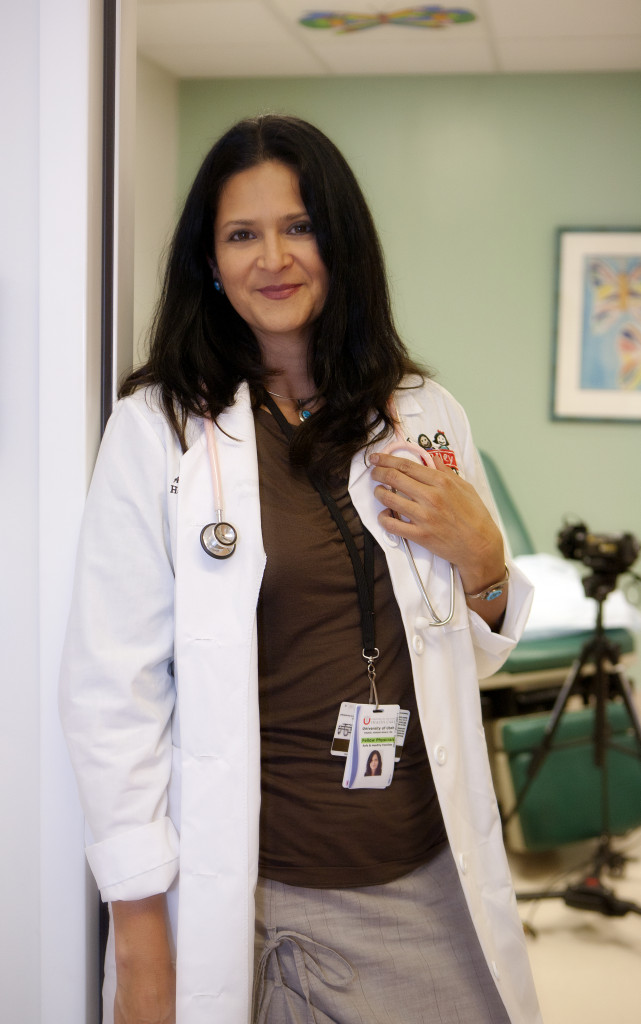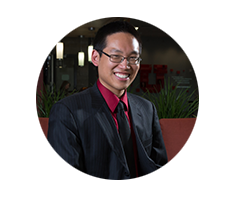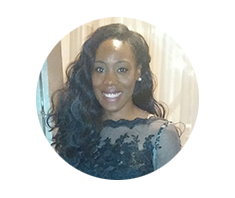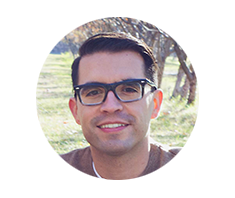By Natalie Dicou, communications specialist, Office of Public Affairs, U Health Sciences
The moment Raquel Vargas-Whale, M.D., M.S., FAAP, first saw the words “child abuse pediatrics,” she knew it was what she wanted to do with the rest of her life.
 “I said ‘Say what? This is a specialty?!’” said Vargas-Whale, who learned about the field while browsing the American Academy of Pediatrics website when she was working as a general pediatrician. “I got up from my desk that day and told my partner in my practice ‘I just figured out what I’m going to be when I grow up.’ And I immediately applied for fellowships.”
“I said ‘Say what? This is a specialty?!’” said Vargas-Whale, who learned about the field while browsing the American Academy of Pediatrics website when she was working as a general pediatrician. “I got up from my desk that day and told my partner in my practice ‘I just figured out what I’m going to be when I grow up.’ And I immediately applied for fellowships.”
Vargas-Whale completed a three-year pediatrics fellowship in Safe and Healthy Families at the U in June. She’s equipped to diagnose and treat kids and adolescents who are suspected victims of child abuse and to collaborate with and provide medical expertise to child welfare staff, law enforcement and judicial systems.
“You just get a joy from working with kids, even when they’re down and out,” Vargas-Whale said.
Discovering her passion wasn’t a straight path for the longtime children’s advocate. Although Vargas-Whale dreamed of becoming a doctor from a young age, during college she felt a pull toward psychology. She became a children’s mental health provider.
“I had a very satisfying career as a therapist, but I kept going back to this interest in science,” Vargas-Whale said. “One day I woke up and said ‘I’m doing it.’”
At 33, Vargas-Whale began her first year of medical school, attending the University of Texas Medical Branch at Galveston. She went on to complete her general pediatrics residency at The Cleveland Clinic Children’s Hospital before practicing for four years as a pediatrician for The Choctaw Nation of Oklahoma, of which she is a proud member.
Vargas-Whale’s heritage—her mother is Choctaw and her father is Quechua of the highland tribes in the Peruvian Andes—is an important part of her identity. One of her highlights from her time at the U was the opportunity to serve as a cultural mentor in the Native American Research Internship, a dynamic summer program for undergraduate Native American students interested in the health sciences.
“One of my mentees has been accepted into medical school,” said Vargas-Whale, who was raised in Venezuela. “Another one is in graduate school now. So that has been very rewarding.”
Another high point of Vargas-Whale’s University of Utah experience was earning a Master of Science in clinical investigation, which she finished during her fellowship. The program is designed to teach health professionals and doctoral students how to create and implement clinical research projects. Vargas-Whale launched two research projects while working toward her clinical investigation degree, including one that studied the health needs of children whose mothers sought intervention or safety from violence.
“Because I now have the research background, I would like to be able to meaningfully contribute to the child abuse pediatrics field,” Vargas-Whale said. “It’s a newer field. It has only been board-certified since 2010, and there is still a lot of research that needs to be done to continue to lay the scientific foundation for this field, and I would like to participate in that.”
In July, Vargas-Whale begins the next chapter of her life. She serves as a child abuse pediatrician at Driscoll Children’s Hospital in Corpus Christi, Texas, and is a member of that hospital’s Child Abuse Resource and Evaluation Team.
Previous “Meet the Graduates”:






